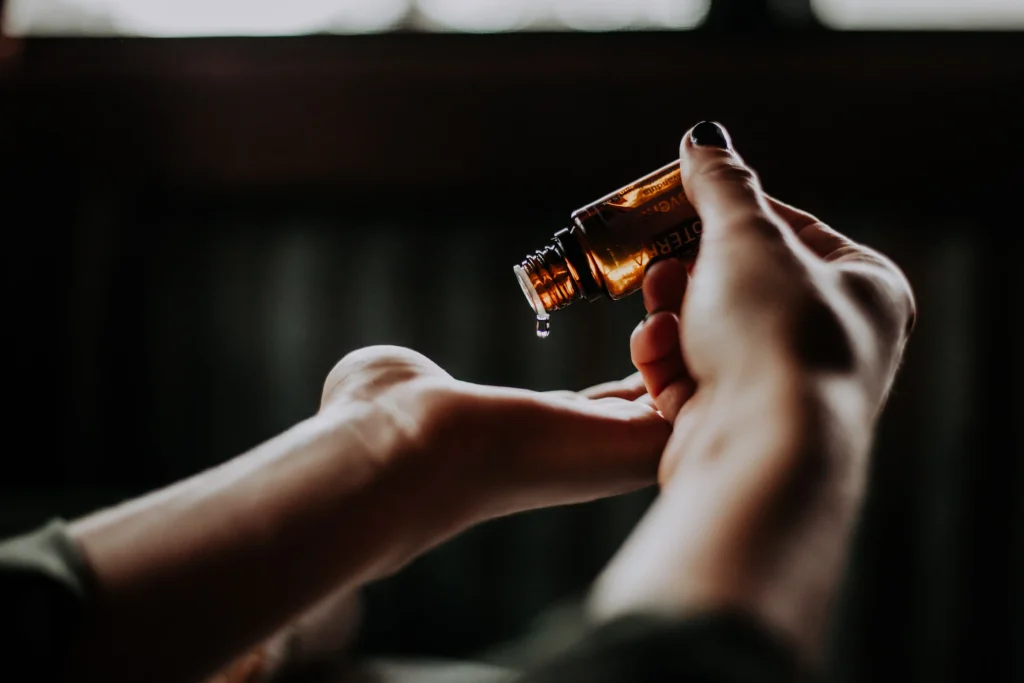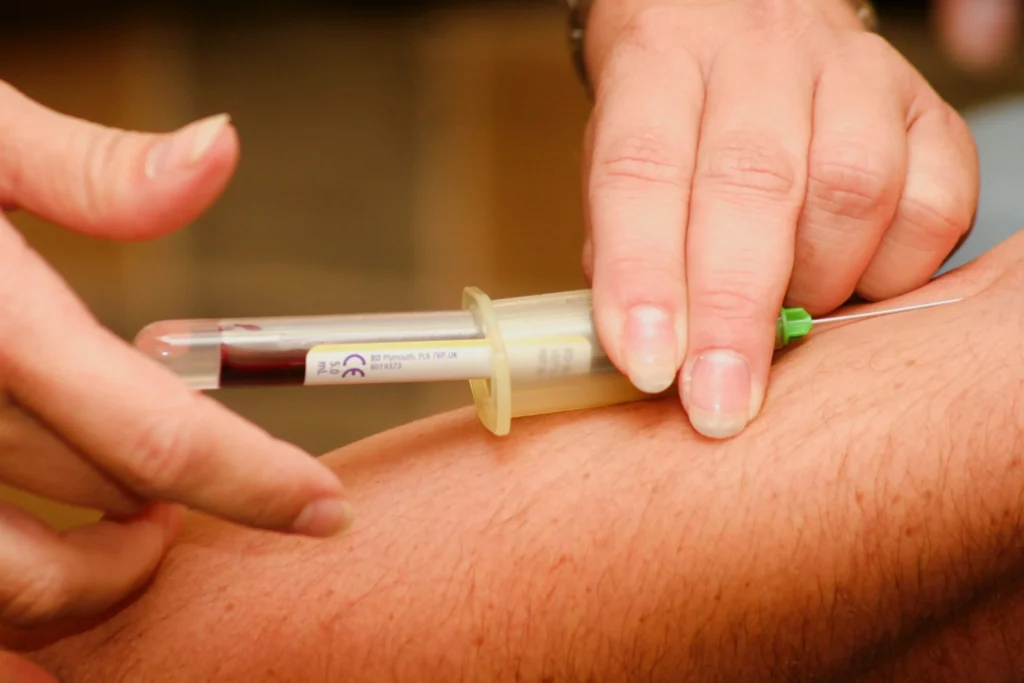Acupuncture is a traditional form of alternative medicine that involves the insertion of thin needles into specific points on the body. The practice of acupuncture originated in ancient China and is based on the theory that there are energy channels, called meridians, that run throughout the body. According to this theory, the proper flow of energy, or qi, through these channels is essential for good health.
Acupuncture is commonly used to treat a wide range of health conditions, including chronic pain, stress, anxiety, and depression. During an acupuncture session, the acupuncturist will first conduct an assessment of the patient’s health and identify the specific areas on the body where the needles will be inserted. The needles are then inserted to varying depths, depending on the condition being treated, and left in place for a period of time, typically between 20 and 40 minutes.
THE PROCESS OF ACUPUNCTURE
Acupuncture is a traditional Chinese medicine technique that involves the insertion of thin, sterile needles into specific points on the body to promote healing and improve overall well-being. Here is a step-by-step process of what to expect during an acupuncture session:
- Initial consultation: The acupuncturist will begin by conducting an initial consultation to understand the patient’s medical history, lifestyle, and health concerns. The practitioner may ask questions about the patient’s diet, sleep patterns, and stress levels to identify the root cause of any issues.
- Physical examination: The acupuncturist will then conduct a physical examination of the patient, which may include observing the tongue and feeling the pulse to further identify any underlying health imbalances.
- Needle insertion: Once the acupuncturist has identified the specific points to be treated, they will insert the thin, sterile needles into the skin at those points. The needles are typically left in place for about 20 to 40 minutes.
- Sensation: When the needle is inserted, the patient may feel a slight prick, but the process is typically painless. Patients may experience a mild tingling or aching sensation around the needle insertion site, which is considered normal and indicates that the energy is flowing.
- Needle removal: Once the treatment time is complete, the needles will be removed. The acupuncturist will gently and carefully remove the needles and dispose of them in a biohazard container.
- Post-treatment advice: The acupuncturist may offer some post-treatment advice, such as drinking plenty of water, avoiding alcohol, and taking rest for the next few hours.
In addition to the use of needles, other techniques may also be used during an acupuncture treatment, including cupping, moxibustion, and electrical stimulation. Cupping involves the use of glass cups that are placed on the skin to create suction and promote healing, while moxibustion involves the burning of herbs near the skin to stimulate specific acupuncture points. Electrical stimulation involves the use of a mild electric current to stimulate the acupuncture points.

BENEFITS OF ACUPUNCTURE
This technique has been used for thousands of years to treat a variety of health conditions, and has gained popularity in recent years as a complementary therapy for pain management and overall wellness. Here are some of the potential benefits of acupuncture:
Pain Relief
Acupuncture has been shown to be an effective treatment for a wide range of pain conditions, including chronic back pain, neck pain, and joint pain. It is believed that acupuncture works by stimulating the release of natural pain-relieving chemicals in the body, such as endorphins and enkephalins.
Inflammation is a common cause of pain in the body. Acupuncture can help reduce inflammation by promoting the release of anti-inflammatory chemicals in the body, such as adenosine and cortisol. Acupuncture can help increase blood flow to the affected area, which can help reduce pain and promote healing. This is particularly beneficial for individuals with conditions such as arthritis, which can cause joint pain and stiffness.
It can help regulate the nervous system by promoting the release of neurotransmitters such as serotonin and dopamine. This can help reduce feelings of stress and anxiety, which can contribute to pain perception.
Acupuncture can be an effective treatment for chronic pain conditions by addressing the underlying imbalances in the body that are contributing to the pain. By restoring balance and promoting healing, acupuncture can help reduce pain and improve overall well-being.
Stress and Anxiety Relief
Acupuncture has been shown to be an effective therapy for stress and anxiety relief. This is because acupuncture stimulates the release of neurotransmitters such as serotonin and dopamine, which are associated with feelings of well-being and relaxation. When acupuncture needles are inserted into specific points on the body, they can help regulate the nervous system and promote a sense of calm.
Stress and anxiety can be caused by a variety of factors, such as work-related stress, financial worries, relationship problems, or health concerns. If left untreated, stress and anxiety can lead to a variety of negative health outcomes, such as high blood pressure, heart disease, and depression.
Acupuncture can be a complementary therapy for individuals dealing with stress and anxiety. In addition to its relaxing effects, acupuncture can also help improve sleep quality and reduce fatigue, which are common symptoms of stress and anxiety.
Improved Sleep
Acupuncture has been shown to be an effective therapy for improving sleep quality and duration. This is because acupuncture can help regulate the nervous system and promote relaxation, which can help individuals fall asleep more easily and sleep more deeply.
Insomnia and other sleep disorders can be caused by a variety of factors, such as stress, anxiety, pain, and hormonal imbalances. If left untreated, sleep disorders can lead to a variety of negative health outcomes, such as fatigue, irritability, and impaired cognitive function.
Acupuncture can be a complementary therapy for individuals dealing with sleep disorders. By promoting relaxation and reducing stress and anxiety, acupuncture can help individuals fall asleep more easily and stay asleep longer. It can also help regulate the production of sleep hormones such as melatonin, which can improve overall sleep quality.
Digestive Health
Acupuncture has been shown to be an effective therapy for improving digestive health. This is because acupuncture can help regulate the digestive system and promote better digestion and absorption of nutrients.
Digestive issues such as irritable bowel syndrome (IBS), bloating, constipation, and acid reflux can be caused by a variety of factors, such as stress, poor diet, and hormonal imbalances. If left untreated, these issues can lead to more serious health concerns such as nutrient deficiencies, inflammation, and autoimmune disorders.
Acupuncture can be a complementary therapy for individuals dealing with digestive issues. By regulating the digestive system and reducing stress and inflammation, acupuncture can help improve symptoms such as bloating, constipation, and acid reflux. It can also promote better nutrient absorption, which can help individuals maintain better overall health.

Immune System Support
Acupuncture has been shown to be an effective therapy for supporting the immune system. This is because acupuncture can help regulate the immune response and promote better overall health and well-being.
The immune system is responsible for protecting the body against infections and diseases. When the immune system is weak, individuals may be more susceptible to illness and may experience more severe symptoms when they do get sick. Stress, poor nutrition, and lack of sleep can all weaken the immune system and make individuals more susceptible to illness.
Acupuncture can be a complementary therapy for individuals looking to support their immune system. By regulating the immune response and promoting relaxation, acupuncture can help individuals maintain better overall health and well-being. Acupuncture can also help reduce stress and inflammation, which are both factors that can weaken the immune system.
It is important to note that acupuncture should not be used as a substitute for conventional medical treatment for immune system disorders. However, it can be used in conjunction with other treatments to help support the immune system and promote better overall health.
Women’s Health
Acupuncture can be particularly beneficial for women’s health issues, such as menstrual cramps, irregular periods, and menopausal symptoms. It can help regulate the menstrual cycle and reduce symptoms such as hot flashes and mood swings. Acupuncture has been shown to be an effective therapy for promoting women’s health. This is because acupuncture can help regulate hormonal imbalances and promote better overall health and well-being.
Many women experience hormonal imbalances at some point in their lives, which can lead to a variety of negative health outcomes such as menstrual irregularities, fertility issues, and menopausal symptoms. In addition, women may also experience other health concerns such as chronic pain, anxiety, and depression, which can impact their overall well-being.
Acupuncture can be a complementary therapy for women dealing with hormonal imbalances and other health concerns. By regulating the nervous system and promoting relaxation, acupuncture can help balance hormone levels and improve symptoms such as menstrual irregularities and hot flashes. Acupuncture can also help reduce pain and improve overall mood, which can improve overall well-being.
FINAL THOUGHTS
Acupuncture has been shown to be effective for a variety of pain conditions, including back pain, neck pain, joint pain, and headaches. It is generally considered safe, although some people may experience mild side effects such as soreness or bruising at the site of the needle insertion. As with any medical treatment, it is important to consult with a qualified practitioner and discuss your individual health needs and concerns.